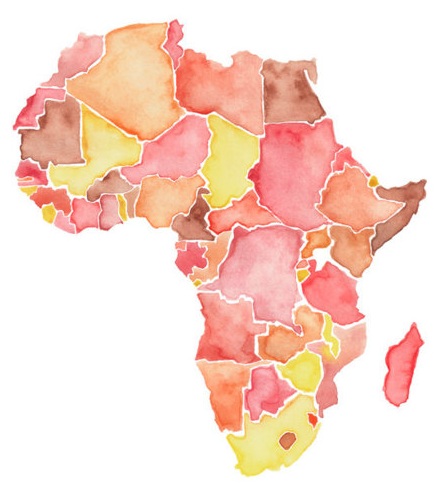African Tech Tidbits: domains, education, social advocacy, vandalism, and more
April 18, 2013 » UncategorizedNo Comment
A few themes and trends on our mind this week:
- Including online courses like Coursera as part of targeted education efforts will be a great way to address a lack of relevant skills in developing countries. We’re glad to see awareness of MOOCs to be growing
- Electricity is still the factor limiting Internet access in many areas. Both a shortage of electricity and a lack of consistent power pose major roadblocks for Internet access. Pre-paid solar power services will help. So will the BRCK. This new device will be able to provide wireless 3G/4G Internet for upwards of 12 hours.
- African web design needs to be shown off if it is to improve. Design Afrique will help recognize African talent.
- Care needs to be taken by all who share data without considering its meaning. Case in point is the finding by SocialBakers that nearly 1 million South African Facebook users left the platform this year. In this example, it’s a matter of 1) Facebook removing fake accounts 2) the mobile sign-up not requiring a location and 3) users going inactive for a period.
- South Sudan will soon get its own top-level domain, but after considering how Mali is offering its .ML domain for free, we are concerned whether enough is being done to foster local content creation within these nations. Web hosting is expensive and certain skills are needed even to post content to a website. The presence of a ccTLD is a step forward (and even baby steps are good), but South Sudan and Mali should aspire to more than simply having ccTLDs available to bolster their global images.
- Word that Planned Parenthood Association of Zambia (PPAZ) helped train twenty specially appointed local members of society on how they can help spread knowledge to stop gender-based violence deserves a mention. The strategy to empower a select group and have them spread knowledge through their respective networks is spot on. Social media is an effective advocacy tool regardless of culture.
- We don’t find Benin to be a haven for online scammers. An article published on a reputable Russian site felt otherwise.
- Parliament of Botswana launched the Botswana Speaks website, a pilot participatory initiative that allows the public to interact with their elected representatives online and via SMS. Hopefully the communication is mutually beneficial and can build into something bigger.
- Freedom of speech on the Internet is going to remain a hot topic for years. Places like Burkina Faso lack legal framework around the issue, but even those that do like Kenya are running into conflicts between netizens and authorities. Recently, Chadian blogger Jean Laokolé was arrested after upsetting authorities with his speech. Moreover, the Kenyan government is tracking down three Facebook page administrators for spreading ethnic animosity. These events further highlights the ongoing struggle between freedom of speech and the law of the land. Where do governments need to draw the line?
- Tracy Angus-Hammond created an excellent infographic showing the impressive increase of mobile phone access and Internet penetration in the under-represented nation of Cape Verde.
- Many universities are promising campus-wide wireless Internet, but such promises are hard to fulfill. Such is the case for the University of Cocody in Cote d’Ivoire where Wi-Fi is hardly available despite months of waiting.
- Internet is often the exciting communications medium, but radio is the bread and butter of media in many areas. The Internet Society Gambia is wise to organize educational radio programs that tout the benefits of the Internet as an agent for development.
- On GlobalGiving, it costs $30 to enable a child in Ho, Volta Region, Ghana to learn computer skills for a year through EIFL.
- Madagascar NGO Habaka is sponsoring “ICT Café” – a forum that plans to meet twice every month to discuss Internet and technology themes. We look forward to hearing what kinds of services these stakeholders inspire.
- Social media and the Internet are heating up in advance of Malawi’s elections next year. However, relatively few Malawians use the Internet, but those who do are perhaps more influential in society. A debate over the issue finds no answer other than to be careful when reading politics online.
- ADSL is becoming neglected in lieu of new fibre broadband offerings. Mauritel recently touted fibre achievements (namely the ACE cable), but what about ADSL customers who aren’t ready to switch? Similarly, time will tell if the launch of 3G in Algeria will prove a fatal blow to Algerie Telecom, with 1.2 million ADSL subscribers.
- Vandalism of fibre cables continues to plague deployment operations. Chinese workers in Tanzania have asked the government to do more to protect the valuable cables. Companies in South Africa have expressed similar concerns. Theft delays projects and wastes money. Threats of violence raise the level of urgency to solve the problem before it gets even more out of hand.
- In an impressive move, state workers in the Democratic Republic of the Congo are now paid via mobile banking. The improvement, promised a year ago by the prime minister, seeks to reduce corruption and also should save the state money. A positive side effect is the introduction of banking to many previously unbanked people.
- Nokia’s new SMS service in Kenya strives to educate mobile users who don’t have a data plan. The most requested services requested are those that help learn business skills. Empowerment is key, as is the emphasis on SMS rather than smartphones.
- Malawi currently pays nearly US$36,000 per year for Internet connectivity, plus another US$36,000 per Mbps annually for satellite broadband. A new fibre project is expected to drop the cost of 1 Mbps of data by upwards of 80%.













 Twitter
Twitter Facebook
Facebook Pinterest
Pinterest